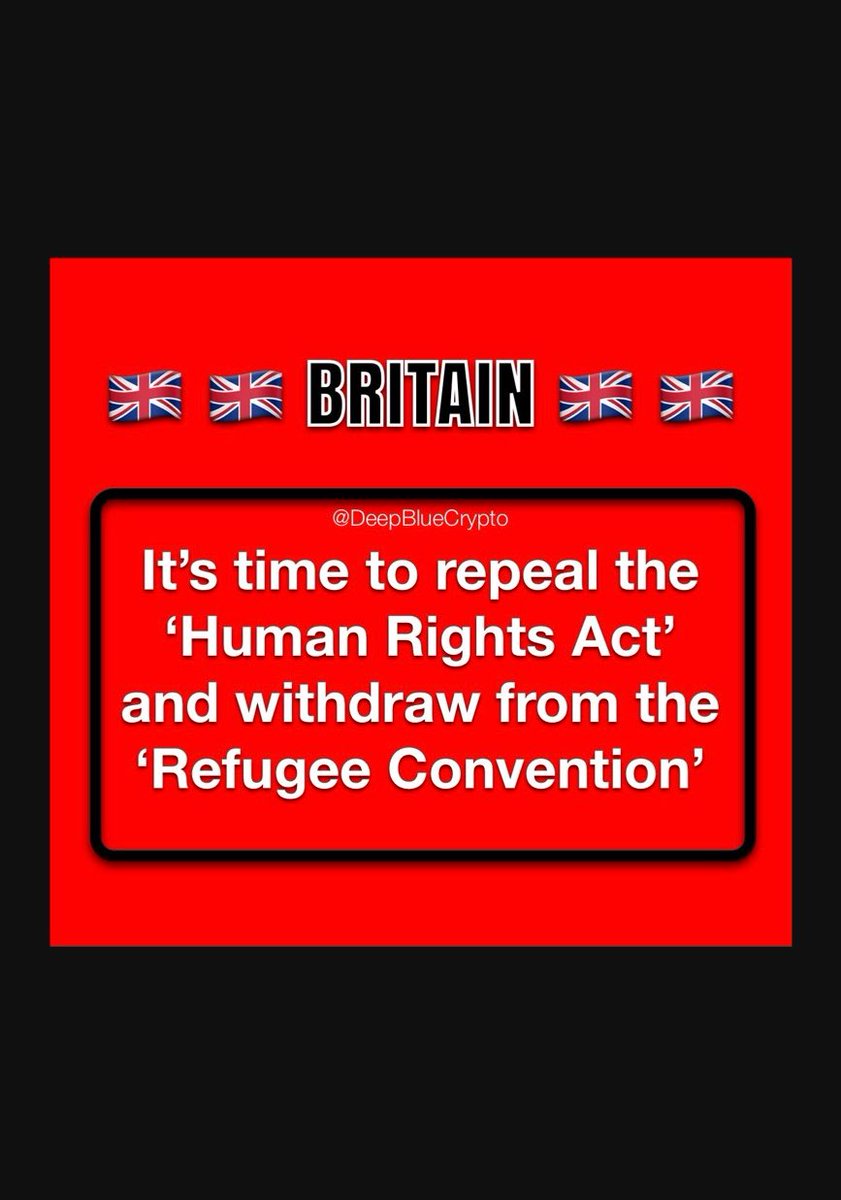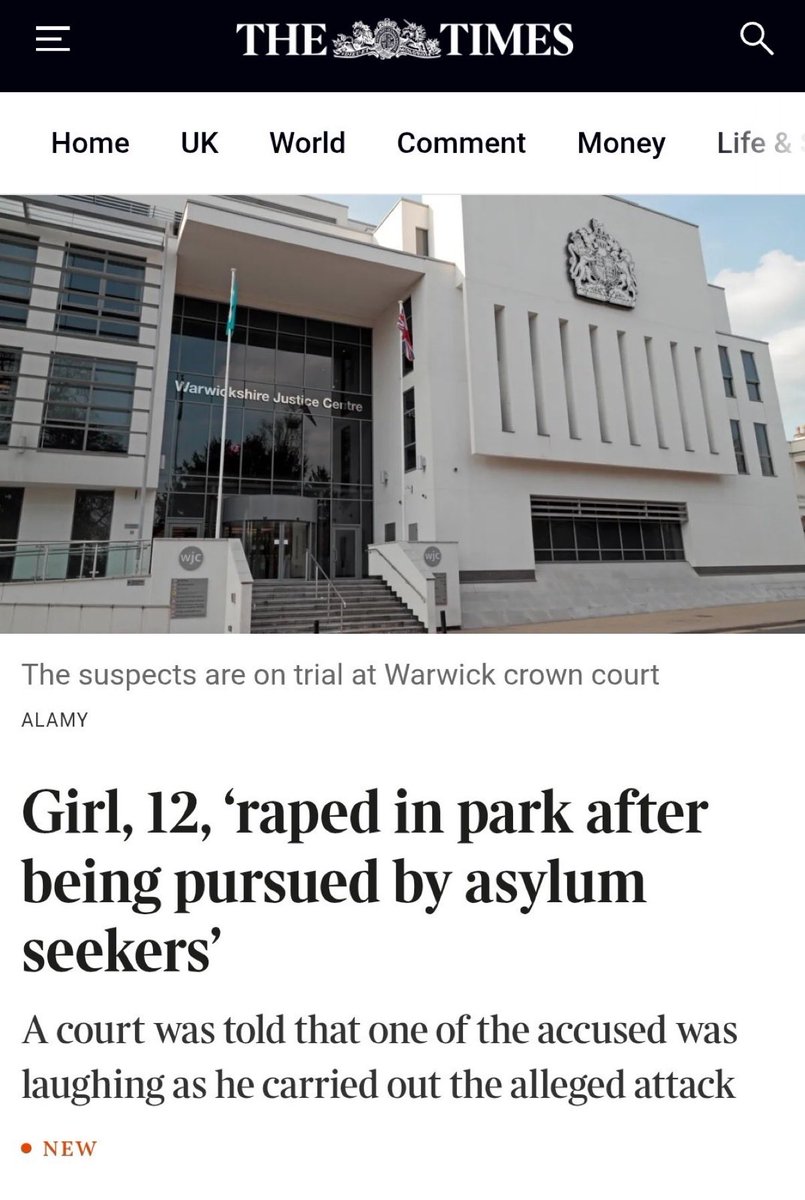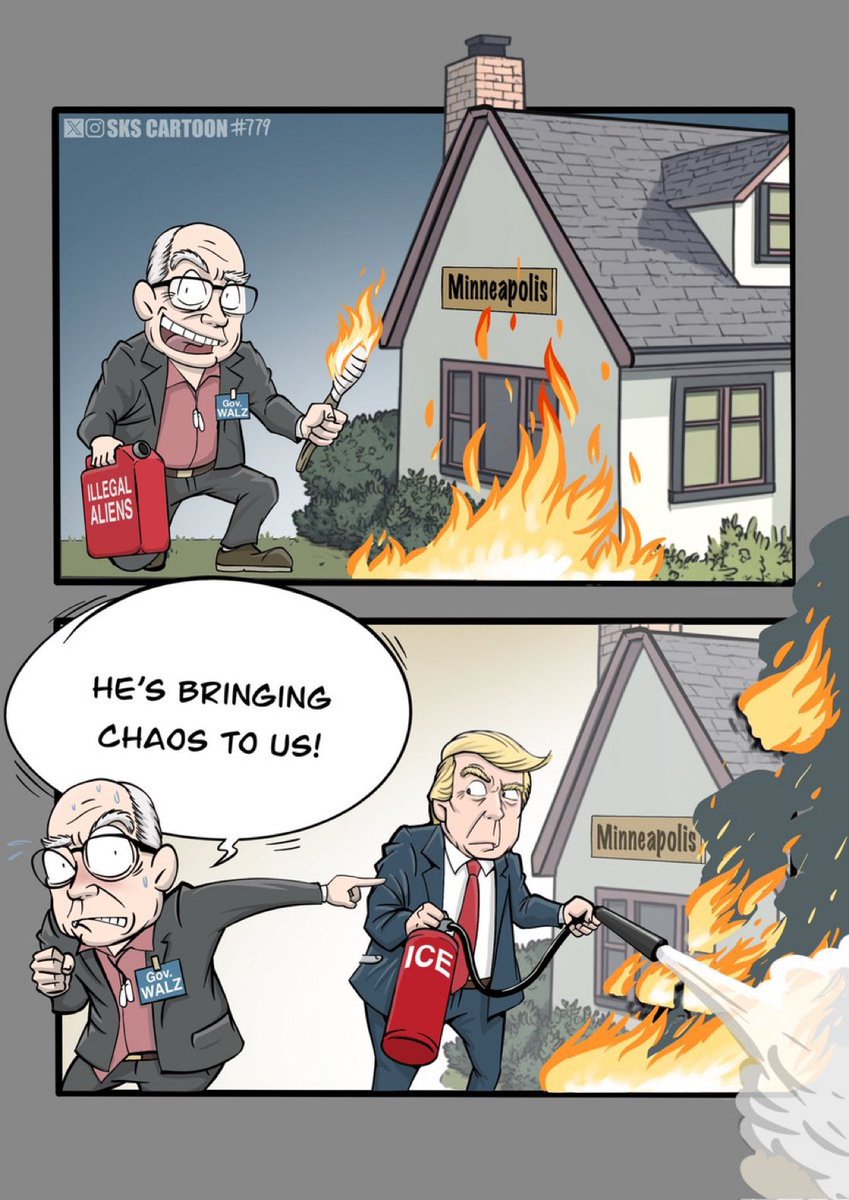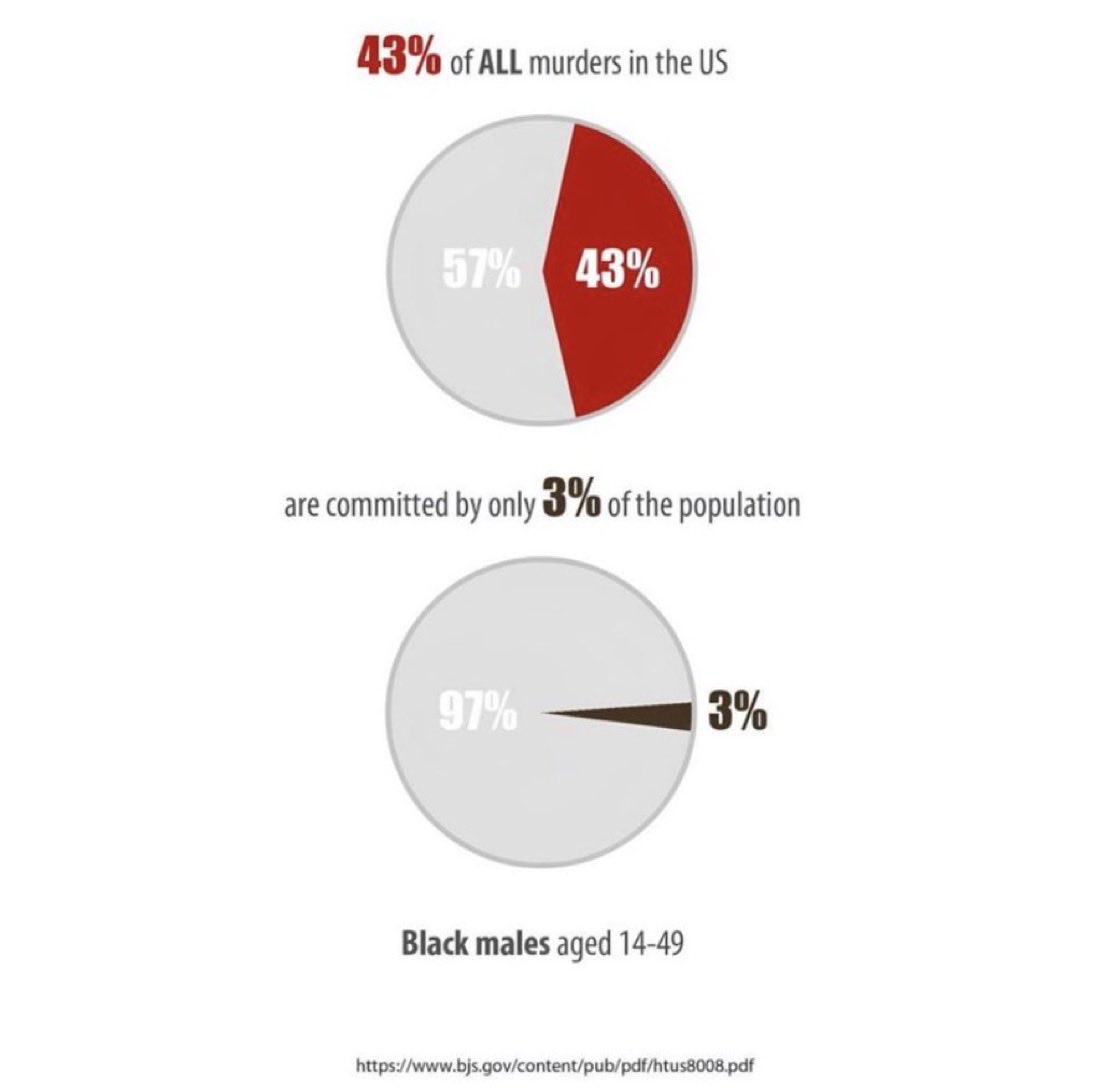Robert F. Kennedy Jr. @RobertKennedyJr officially announced his bid for 2024 presidential elections as a Democratic candidate today.
RFK is much much better than any democratic candidate in the race right now. Biden-Harris is a train wreck.
A thread on his political journey👇
RFK is much much better than any democratic candidate in the race right now. Biden-Harris is a train wreck.
A thread on his political journey👇

@RobertKennedyJr says the entire US foreign policy has collapsed under Joe Biden. He doesn’t want the Democratic Party to be the party of war, fear and censorship. We need to stand against wars, put our children first and completely negate Biden’s policies. 

Robert Kennedy: This is what happens when you censor somebody for 18 years. I got a lot to talk about. They shouldn't have shut me up for that long because now I'm really going to let loose on them for the next 18 months.
Robert F. Kennedy Jr on the Attack on the Constitution During the COVID Pandemic
If you give the government a license to silence it’s critics, it now has a license to commit any atrocity. They bypassed every amendment of the constitution.
If you give the government a license to silence it’s critics, it now has a license to commit any atrocity. They bypassed every amendment of the constitution.
Robert F. Kennedy Jr Vows to Stand Up Against the Bureaucracy in Washington
"You need a President at this time in history who can stand up to its bureaucracy"
He explains a situation in the Cuban missile crisis during the Cold War era.
"You need a President at this time in history who can stand up to its bureaucracy"
He explains a situation in the Cuban missile crisis during the Cold War era.
Robert F. Kennedy Jr Vows to bring the troops home and close the military bases.
Saudi Arabia & Iran just brokered a peace deal. Our strategy in the Middle East has utterly collapsed and our economy is going to follow if we don't do something fast.
Saudi Arabia & Iran just brokered a peace deal. Our strategy in the Middle East has utterly collapsed and our economy is going to follow if we don't do something fast.
RFK Calls Out the Corruption in Our Federal Regulatory Agencies
"President Trump brought in Scott Gottlieb. Scott made $88 Billion for Pfizer on one vaccine and then left to join Pfizer's board. That's not draining the swamp - that is the swamp."
"President Trump brought in Scott Gottlieb. Scott made $88 Billion for Pfizer on one vaccine and then left to join Pfizer's board. That's not draining the swamp - that is the swamp."
RFK - We are going to take back this country. You give me a piece of ground and a sword, and I am gonna take back this country with your help - the help of all the homeless Republicans and Democrats and Independents who are Americans First
RFK was censored by media for years since he was anti war, anti big Pharma and anti media establishment quid pro quo in general.
It’s great to see a Republican channel Fox taking Robert Kennedys side and standing for the truth 👍
It’s great to see a Republican channel Fox taking Robert Kennedys side and standing for the truth 👍
@RobertKennedyJr has been suppressed by mainstream media for so long calling him a conspiracy theorist for speaking out the truth.
Don’t trust the mainstream media, don’t trust the approved fact checkers.
Don’t trust the mainstream media, don’t trust the approved fact checkers.

The US Bails Out Banks, Sends Money to Ukraine While Ignoring Everyday Americans
"US told 30 million people it was cutting their food stamps by 90%.k & took 15 million people off Medicare, gave $300 million to the SVB, sent $113 billion to Ukraine."
"US told 30 million people it was cutting their food stamps by 90%.k & took 15 million people off Medicare, gave $300 million to the SVB, sent $113 billion to Ukraine."
Joe Biden and Kamala Harris are so bad in debates, they might as well stop shooting themselves in the foot. RFK would be so appealing, they wouldn’t stand a chance against him. 

RFK truth bombs on - Tony Fauci Knew That Remdesivir Would Kill You.
"How does it kill you?" he asked. "Kidney failure, heart failure, and all-organ collapse."
"How does it kill you?" he asked. "Kidney failure, heart failure, and all-organ collapse."
RFK on Fox News firing #TuckerCarlson 

All the actions we’ve taken so far regarding the war on Ukraine is to prolong the war and wear out the Russians rather than shorten the war.
It’s the #MilitaryIndustrialComplex operating it’s endless war game.
It’s the #MilitaryIndustrialComplex operating it’s endless war game.
https://twitter.com/ivan_8848/status/1650484391779418118/video/1
RFK Jr. Vows to End the Chronic Disease Epidemic: "We Have the Sickest Generation in American History"
Obesity, Diabetes, Heart disease, autism, ADHD and others have skyrocketed. Autism went from 1/10,000 50 years ago to 1/35 now.
Obesity, Diabetes, Heart disease, autism, ADHD and others have skyrocketed. Autism went from 1/10,000 50 years ago to 1/35 now.
Ukraine gets $113 Billion While Americans Endure a War on the Poor
• 57% of Americans cannot have $1,000 for emergency
• 25% of Americans go to bed hungry
• 1.5 million veterans below poverty
• 23 veterans a day commit suicide
• 57% of Americans cannot have $1,000 for emergency
• 25% of Americans go to bed hungry
• 1.5 million veterans below poverty
• 23 veterans a day commit suicide
Democrats have declared no more debates from the President and VP.
Seems like this administration knows they’ll lose the debates and hence they’re avoiding them like Katie Hobbs did against @KariLake in Arizona.
Seems like this administration knows they’ll lose the debates and hence they’re avoiding them like Katie Hobbs did against @KariLake in Arizona.

RFK says it's unfortunate that Tucker Carlson lost his show, given that he had a higher number of Democratic viewers than Rachel Maddow, ten times the average viewership of CNN, and was discussing topics never seen on television.
RFK explains his plan to stop pharmaceutical ads on TV, make all federal health databases accessible, and end the corrupt practices of the medical journal industry
Robert F. Kennedy Jr & Mike Tyson on the Business Model for Vaccines
"They're making $60 billion/year selling us vaccines but they're making $500 billion/year selling the remedies for the injuries caused by vaccines"
"They're making $60 billion/year selling us vaccines but they're making $500 billion/year selling the remedies for the injuries caused by vaccines"
This might be a good one. @VivekGRamaswamy already agreed to this, just waiting on @RobertKennedyJr to confirm. 
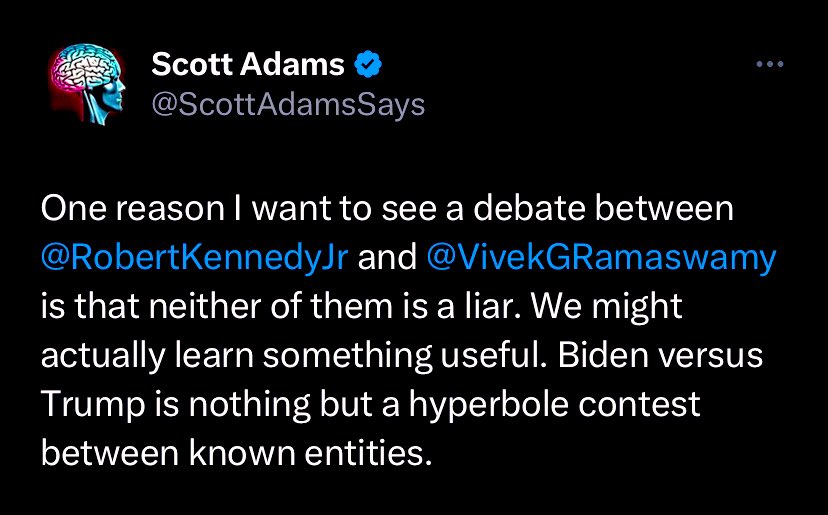
Up to 500,000 Dead from a Headache Pill: These Vaccine Manufacturers Are Serial Felons - RFK Jr.
"Merck knew [Vioxx] caused heart attacks and killed people. And they didn't tell anybody," disclosed @RobertKennedyJr
"Merck knew [Vioxx] caused heart attacks and killed people. And they didn't tell anybody," disclosed @RobertKennedyJr
Robert Kennedy Jr. calls out Bill Gates and the World Economic Forum #WEF saying they are exploiting climate change like they exploited Covid
Joe Rogan Questions Why DNC Won't Let @RobertKennedyJr Debate Biden: "That's Not That Democratic”
If RFK debates Joe Biden, Joe will lose for sure
If RFK debates Joe Biden, Joe will lose for sure
RFK Defends Julian Assange & Edward Snowden: "Why Are We Punishing the Whistleblower? We should be punishing the people who were illegally spying on innocent American citizens.”
With this statement, RFK is much better than Trump, DeSantis & Biden.
With this statement, RFK is much better than Trump, DeSantis & Biden.
• • •
Missing some Tweet in this thread? You can try to
force a refresh




